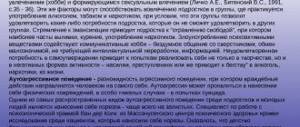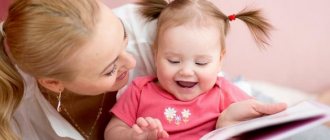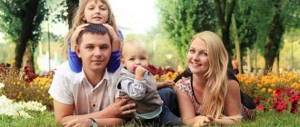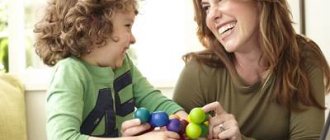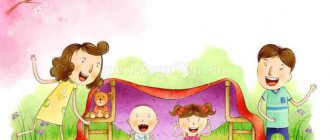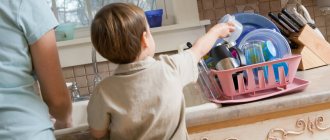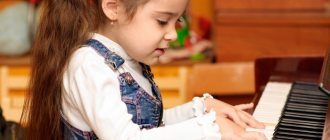Raising a child is a responsible process. Parents need to provide for their children financially and take care of their spiritual, emotional and physical health. The latter, unfortunately, is most often neglected by parents.
Scientists believe that the main disease of the 21st century is inactivity. This is due to the development of technological progress. Children prefer to spend their free time sitting at the computer. And this is fraught with health problems: an increased risk of heart disease, excess weight, curvature of the spine and metabolic failure. To avoid health problems, scientists recommend instilling physical education from early childhood.
What is child physical education?
Physical education is a process aimed at developing the musculoskeletal system and promoting health. Properly organized physical training contributes to the development of personal qualities: perseverance, independence, determination and perseverance. Sport is part of a healthy lifestyle.
The first years of a child’s life before entering school are considered an important period in the formation of personality and body. During this period, the child's body grows rapidly. In the first year, growth increases by 50%. A mobile offspring indicates normal development. Being active, the baby strengthens his cardiovascular, respiratory and nervous systems.
School age is the most favorable for learning motor skills. Senior school age is considered sensitive in relation to all physical qualities of a person. This includes speed, strength, agility, flexibility and endurance. It is at this age that physical and mental work occurs in the best way.
Main directions in working with parents:
- holding meetings in kindergarten to inform parents about cooperation;
- familiarizing parents with the work of the kindergarten according to the proposed program (meetings, open classes, special exhibitions, thematic videos, mobile libraries, joint classes, consultations, joint diagnostics of physical condition, etc.);
- organization of various physical education, health and sports events with the participation of parents (including using their professional knowledge: the experience of a medical worker, doctor, physical education specialist, massage therapist, etc.);
- familiarizing parents with the results of learning and diagnosing the physical condition of children (open classes, various general events, “corners for parents”, etc.);
- homework that will help increase the motor activity of children, improve their motor skills (homework for the whole group is posted in the “parents’ corner”, and for a lagging child they are given in a private conversation with the parents).
Where does physical education of a child begin?
The physical education of a child begins with the family. Parents are encouraged to study the stages of physical development of the child. Its age and individual characteristics should be taken into account. Based on them, it is necessary to select exercises. The main thing is that the child feels comfortable and safe.
Daily regime
A daily routine is necessary for the beneficial functioning of the nervous system. The components of a daily routine are the correct alternation of various types of activities, organization of sleep, nutrition and rest. Inconsistency with the lifestyle leads to fatigue, inattention and decreased performance. It is recommended that children of primary school age take a nap during the day.
Questionnaire for parents PHYSICAL EDUCATION IN THE FAMILY material on physical education on the topic
Questionnaire for parents
PHYSICAL EDUCATION IN THE FAMILY
Goal: To identify parents’ knowledge on raising a healthy child in the family.
-Do you follow articles in magazines, television and radio programs on physical education?__________________________
-Do you read books on this topic from time to time?_____________________
-Do you follow a daily routine on weekends?________________________
-What type of hardening suits you in kindergarten?
a) systematic ventilation b) breathing exercises c) walk at any time of the year
d) walking barefoot on a ribbed board
-Do you carry out hardening activities at home with your children?____________
-Do you go for walks with your child after kindergarten?_____________________
-Do you have physical education equipment at home?___________________
-Do you do exercises at home?_____________________________________________
-What does your child do in the evenings and on weekends?
a) outdoor games b) board games c) TV d) computer
10. What issue would you like to receive advice on? a) disease prevention b) breathing exercises c) hardening d) posture correction
e) prevention of flat feet
Questionnaire for parents
Goal: Identification of activities that promote the health of children carried out at home.
- Why do you think your child is sick?________________________________________________________________________________
- What do you think will help improve his health?
__________________________________
- What types of hardening do you use at home? ____________
- Do you do morning exercises and sports games with your child?_____________________________________________
- Do you have any sports equipment and small sports equipment at home?__________________________________________
- Does your child attend any sports section? What are its benefits in your opinion?______________________________
- What issues of physical education and health improvement of the child’s body are you interested in? What types of events for parents do you offer on these topics?
________________________________________________
Questionnaire for parents of frequently ill children
Goal: Identification of health improvement methods that parents are ready to support at home.
- Does your child get sick often? ________________________________
- While on sick leave, do you regularly follow your doctor’s orders?_________________________________________________
- Have there been any cases of your child being discharged with residual symptoms of the disease?_________________________________________________
- Do you follow a daily routine on weekends?_____________________
- Do you carry out hardening activities at home with your children?_________
- Do you go for walks with your child after kindergarten?_________________
- Do you do exercises at home?_________________________________
- Do you have physical education equipment at home?_______________
- What kind of consultation would you like to receive?_________________
a) – breathing exercises b) – hardening procedures c) – elements of self-massage
Questionnaire for parents “What place does physical education occupy in your family” 1. Number of children in the family____________________ 2. Which parent is or has been involved in sports? Which one?__________________________ 3. Are there sports equipment in the house? Which ones?______________________________ 4. Does your child attend a sports section? Which one?____________________ 5. What outdoor games does your child like to play? ______________ 6. Is there a daily routine for your child? (YES, NO)___________ 7. Does the child comply with this regimen? (YES, NO)______________________ 8. Do you do morning exercises at home? (underline) Mom (yes, no). Dad (yes, no). Children (yes, no). An adult with a child (yes, no). Regularly, not regularly. 9. Does your child follow the rules of personal hygiene at home? (washes hands before eating, after using the toilet, washes his face, brushes his teeth)._________________________ 10. Do you watch sports programs with your child?___________ 11. Do you pay attention to the child’s posture?_________________ 12. Do you carry out hardening activities at home with your children? _________ 13. Do you go for walks with your child after kindergarten? (YES, NO, SOMETIMES) 14. Which family member most often walks with the child?_______________ 15. Does your child walk alone, without adults? (YES, NO, SOMETIMES) 16. Types of activities of the child after returning from kindergarten and on weekends: - outdoor games, sports games - board games - reading books - watching TV shows, computer games - drawing, designing - other:__________________________________________
Tips for parents
- It is recommended to work with children from early childhood.
- You should devote at least 10 minutes to exercise daily.
- Fresh air is an important factor. Children should go outside every day, regardless of the weather.
- When planning lessons, it is necessary to take into account the age and characteristics of the child’s body. The baby may be ahead or behind in motor development.
- Experts recommend choosing exercises with the right emotional charge. This has a positive effect on ethical, aesthetic and emotional education.
Consultation “The role of the family in raising a child”
MDOU "Kindergarten No. 114"
Parent consultation:
«The role of the family in raising a child»
Prepared by:
teacher Sharova N.N.
Saratov, 2019
Consultation “ The role of the family in raising a child ”
The role of parents in raising children is very important - the development of the life scenario of a growing child depends on them.
The family is traditionally the main educational institution. What a child acquires from the family during childhood, he retains throughout his entire subsequent life. The importance of the family as an educational institution is due to the fact that the child stays in it for a significant part of his life, and in terms of the duration of its impact on the individual, none of the educational institutions can compare with the family. It lays the foundations of the child’s personality, and by the time he enters school, he is already more than half formed as a person. The family is a powerful factor in the formation of personality, the development of universal and individualized qualities in it, because in the family the child first learns norms of behavior, relationships and feelings towards himself and others.
The family provides initial education, physical, psychological and generally social protection and support for children.
Good parents raise good children. Future parents think that they can become like this by studying specialized literature or mastering special parenting methods, but knowledge alone is not enough. Parents constitute the child's first social environment. The personalities of parents play a vital role in the life of every person. It is no coincidence that we mentally turn to our parents, especially our mother, in difficult moments of life. That is why the first and main task of parents is to create confidence in the child that he is loved and cared for. Never, under any circumstances should a child have doubts about parental love. Deep, constant contact with a child is a universal requirement for upbringing. The basis for maintaining contact is a sincere interest in everything that happens in the child’s life. Contact can never arise by itself; it must be built even with a baby. When we talk about mutual understanding, emotional contact between children and parents, we mean a certain dialogue, interaction between a child and an adult with each other. It is when the child participates in the common life of the family, sharing all its goals and plans, that the usual unanimity of upbringing disappears, giving way to genuine dialogue. The most significant characteristic of dialogical educational communication is the establishment of equality of positions between the child and the adult. Negative assessments of the child’s personality and inherent character qualities should be categorically abandoned. Monitoring negative parental assessments of the child
It is also necessary because very often behind parental condemnation there is dissatisfaction with one’s own behavior, irritability or fatigue that arose for completely different reasons.
Child's independence.
The bond between parent and child is one of the strongest human bonds. If children, growing up, increasingly acquire a desire to distance this connection, parents try to hold on to it as long as possible. The solution to this problem, in other words, providing the child with one or another measure of independence is regulated primarily by the child’s age. At the same time, much depends on the personality of the parents, on the style of their attitude towards the child. It is known that families vary greatly in varying degrees of freedom and independence provided to children.
